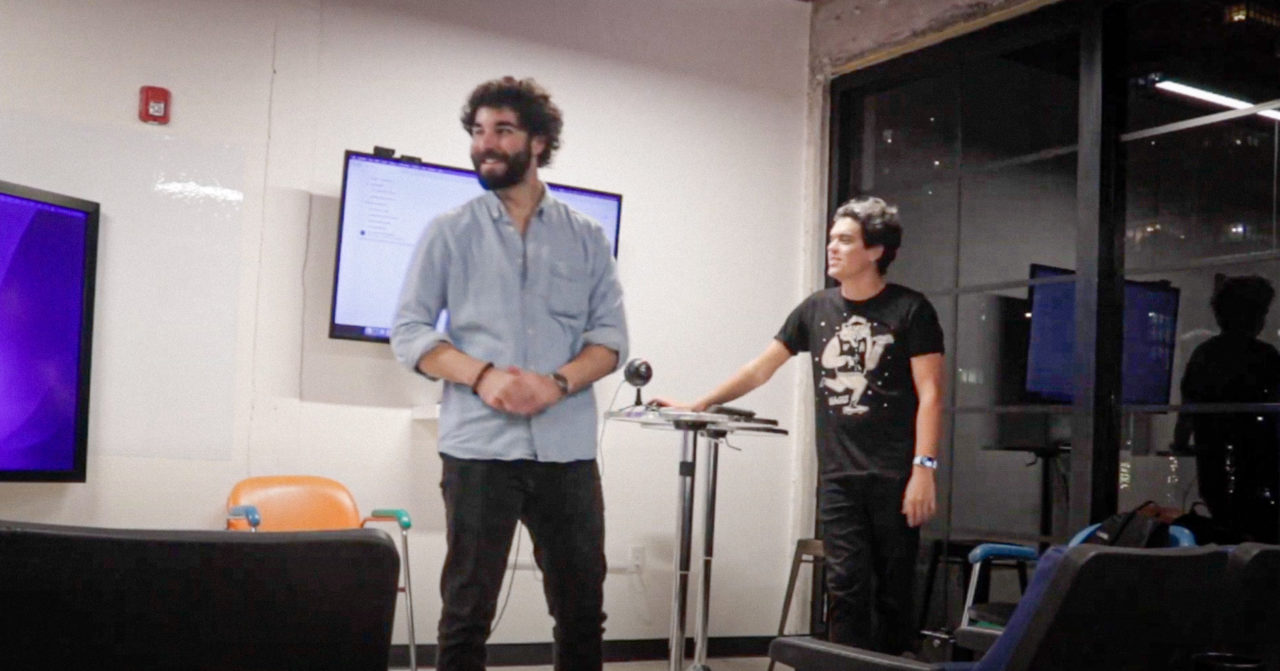
How do you justify leaving your home country when you have it all? How do you leave your family, friends, and career behind without hesitation? Love. That’s the only thing powerful enough to make you leave the rest behind. Grab your tissues and wine bottle just as I did and buckle up for a good old fashioned love story.
I had the pleasure of interviewing one of my favorite professors at Miami Ad School, Federico Giraldo, a Colombian Creative Director with an eccentric personality and a heartbeat louder than his television during the World Cup. In our long talk about love, luck, and life, I saw a side of him I didn’t get to in class. It may have been the wine talking, but I was able to catch a glimpse into the passion he has for more than advertising and soccer (we’re in America so I’m calling it soccer). I got to see his passion in every word he said, every line he drew, and certainly every drink he sipped. From Medellin to Miami, he faced uncertainty and embraced it.
After we popped the cork, my first question was the biggest of them all, “Am I your favorite student?” Just kidding, I already knew the answer. I asked, “Why are you in the US?” To which he told a tale that I’m hesitant to repeat, because it seems eerily similar to the situation I’m in with my girlfriend. But I don’t want to think about that right now. Back to Federico.
He had known his now-wife for over 20 years in Colombia. They began as friends with benefits, like all healthy, modern relationships do, and in 2013 they settled down for a total of five minutes… and then she moved to the States. For three long years their relationship lived at opposite ends of a plane ticket. Then, reality kicked in. He knew something would have to change for his relationship to last. So, he quit his job as Creative Director at DDB Colombia, put all his awards in a bag, showed it the government, and came to the US on an extraordinary ability visa. He was 36 with a great life in Colombia. He had his family, friends, job, and most importantly, soccer team, but he left it all behind for love. And while he hasn’t regretted it since, there story doesn’t end there.
It’s been six years since his move, and he acknowledged that economic reasons also influenced his decision to relocate. The main one being the pursuit of the almighty dollar. He came here for love, but also the love for money. The fact is, the currency is extremely devaluated in Latin American countries. A prime example being the Colombian peso is 5-1 to the dollar. He said, “getting the new iPhone or new kicks is like getting a car,” and even though they have universal healthcare, most of the country lives in poverty. But their power distance is decreasing since the election of Gustavo Petro, the first left-wing president in 200 years.
As a factor of the long-standing power dynamic, cheap labor lives up to the name. Maids and nannies are so commonplace in Colombia, that most families extend into triple digits because they know they’ll be taken care of. Federico mentioned that he probably has a cousin from the second marriage of his uncle’s dog’s niece’s nephew that he hasn’t met yet. In America, we think long and hard about bringing a child into this world because of the financial burden, but in Colombia, that concern is covered by not only maids, but the role of women in the household. They stay in the home to raise and teach the kids in their early years. The sheer number of single mothers encourages their longstanding gender roles, women at home, men at work.
Colombians are easier to get along with. That’s why co-workers and friends go hand in hand. In his city, hard work is easy to find, and it’s even easier to find someone who you’d enjoy drinking with. Most Colombians welcome foreigners into open arms to show them the delights of their city. They are collectivistic and are connected by more than blood; their history unites them. Unlike the US, in Colombia, old lives matter. They value youth just the same as they do the elderly.
One of the more shocking revelations came from his experience driving in both countries. This was the first time anyone has ever told me that driving in Miami is “paradise.” Apparently, driving in Colombia is his own personal hell. He said, “There are more motorcycles than people.” This fear gets worse when crime is involved. Robbers go through motorcycles and knock-on windows so often that people carry around fake wallets. When I mentioned the war on drugs, he showed great disdain for it. There’s not a single family in Colombia that hasn’t lost someone to it. Now that he’s living in the States, he’s noticed that it breeds his inner conflict of being in the place where this war originated. But at least he has a nice view of the beach.
Federico may not have strayed too far from home coming to the Latin melting pot that is Miami. Our values align on one too many topics. Once we get comfortable in the workplace, we kiss on the cheek. Our fashion is a means to tell stranger how much we’re worth. The younger generations strive for inclusivity and self-expression. Although it’s a bit stricter in the US, both countries are increasingly delicate with our use of humor. The main difference there is that they love to joke about their mother-in-law’s, while in the US we joke about white people. Either way, his love story doesn’t end here. After all, he still needs to name his future son after me.
References
Mooji, Marieke de. 2019. Global Marketing & Advertising Understanding Cultural Paradoxes. Sage Publications.
